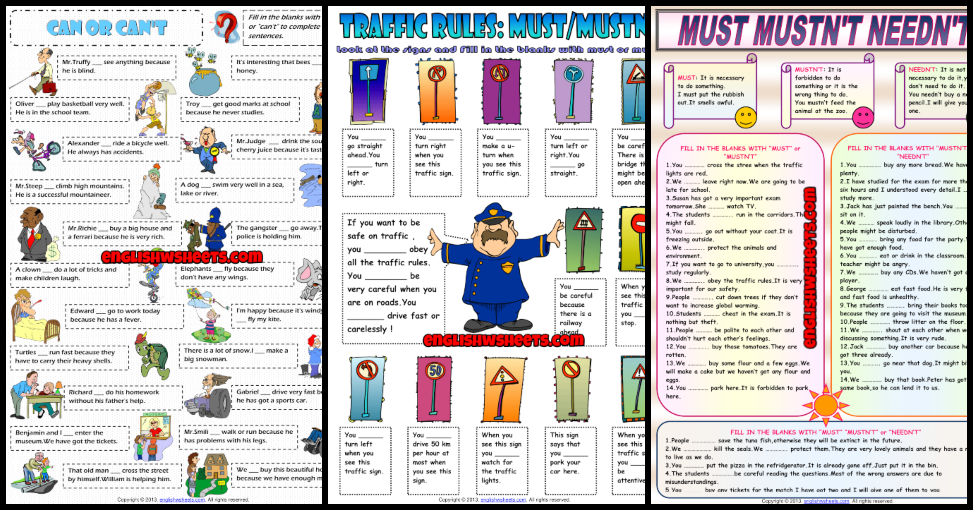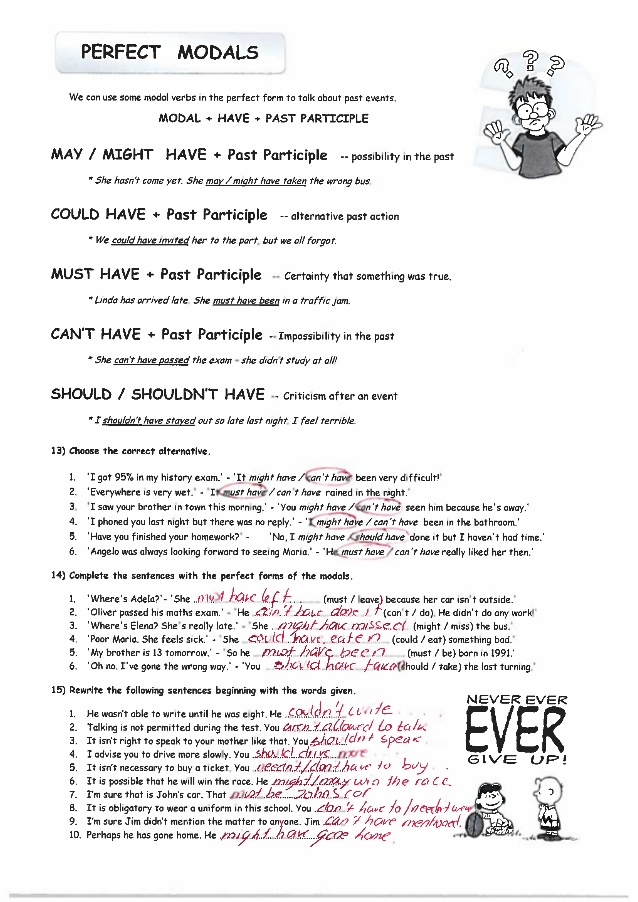
Here’s an example that illustrates the difference between must not have and couldn’t have: But Eric couldn’t have reached the cookies on the top shelf he must have asked his older brother to get them.Ĭan’t have is also possible, but it is much less common than couldn’t have.

When we draw the conclusion that something did NOT happen There was one banana left, but now it’s gone.She must have spent a lot of time in the sun lately. When we draw the conclusion that something DID happen When we consider some present evidence and draw a reasonably certain conclusion about what happened in the past, we use must have and couldn’t have plus the past participle of the verb. For each one, fill in the blank with must (if you think it is true) or can’t (if you think it’s not possible). You’ll see five pictures accompanied by sentences. (we are very certain he is NOT a policeman)Ĭarla works every day from 9 AM to 5 PM. (we are very certain, because of his uniform and what he is doing) Check your understanding by hovering over the info bubbles for simple explanations and handy tips.For example, if you see this guy, you can say:
#Past modal verbs exercises with answers plus
Each grammar topic comes with one free exercise where you can review the basics, as well as many more Lingolia Plus exercises where you can practise according to your level. Max’s father couldn’t work in the garage alone. Was Max able to change the tyre yesterday? Max’s father could remember changing his first tyre. Example: Max’s father could do everything in the garage. The negative couldn’t can be used in all three cases.

We use was/were able to when we talk about something specific in the past. We use could for general ability and with the verbs feel, hear, see, smell, taste, remember and understand. * We use could and was/were able for the past of can. Of course, we can also use the alternative forms (except for could) in other tenses. Max’s father also was supposed to/was expected to/was to work in the garage often. Max should work in the garage more often. To be supposed to/to be expected to/to be to Max’s father did not have to worry about his future either. Max’s father was allowed to help at the age of 13. Max can help in the garage at the age of 12. His father was not able to/couldn’t change tyres. His father was not allowed to touch anything dangerous.


( but not: Max’s grandfather can be retired.)


 0 kommentar(er)
0 kommentar(er)
